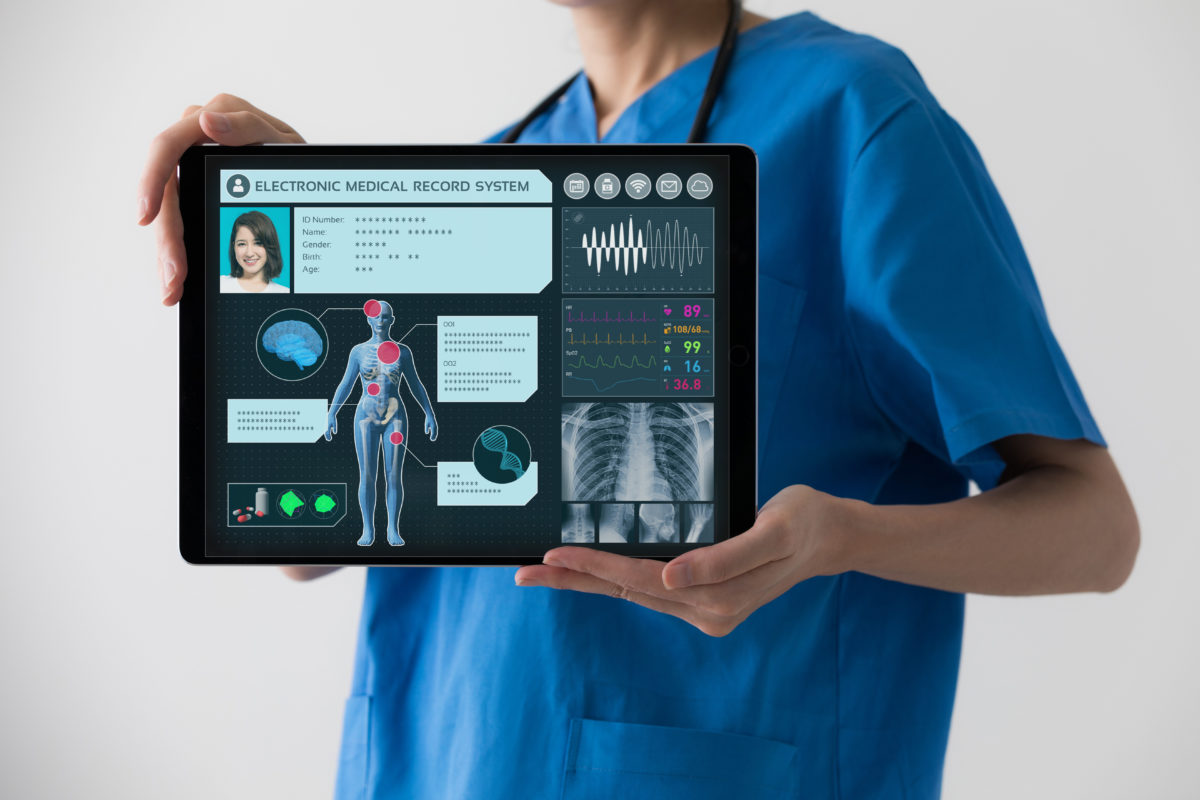Timely information is key to availing better care, and technologies such as electronic health records (EHRs) are making this possible. Whether you are an established practice with an entire IT department or a startup with a small business IT support, investing in IT solutions for improved patient care is as important as hiring the best clinicians.
By so doing, patient data can be accessed from a central point in real-time, making it possible to make diagnoses early, and issue the right course of treatment.
How it happens
Many things contribute to making information available when, for example, you key in prompts for patient information on your iPad. Chief among these activities is the identification of critical data points that can help improve how clinicians issue care.
Critical data points for EHRs
Electronic health record systems offer comprehensive patient information and include critical data points. These points include:
- Patient-reported data, which includes contact information, insurance, and demographics.
- Clinical data, such as medical history, vitals, allergies, current treatments and tests ordered, laboratory and radiology results, diagnoses and treatments ordered, and medications.
- Billing information, such as scheduling and collections, which are usually integrated into the EHR system to streamline billing.
Benefits of storing patient data using EHRs
The benefits of IT solutions such as EHRs stem from the critical points identified above and all help to improve patient outcomes. These benefits include:
1. Improved patient safety
Medical errors are one of the biggest causes of death. These deaths can, however, be reduced if physicians can access pertinent information to help them make better decisions. EHRs help reduce these errors by providing information, such as life-threatening allergies, drug interactions, and operational problems, which could put patients’ lives at risk.
2. Improved diagnoses
EHRs contain comprehensive patient information easily available at the point of care. Details such as treatment history can help clinicians track changes and identify pain points that need to be addressed. The information can help make timely, more accurate diagnoses, which guide the physician on the right course of action.
A case example of how EHRs improve diagnosis is a new technology dubbed SPOT, which uses algorithms based on patient information to help detect early sepsis. Here clinicians can act quickly, increasing the likelihood of patient survival.
3. Improved relationships
If you own a small family practice, EHRs can help improve communication between you and other consultants to help provide better care to your patients. You can easily share and access chart summaries, medical notes, view past prescriptions from other consultants, and any other pertinent patient data. You can also share task requests with your team members.
Even better, your patients can book appointments remotely, and these booking schedules will be easily accessed by all your team members. This kind of collaboration help improve relationships and increase patient satisfaction.
4. Improved efficiency
Comprehensive patient care involves many activities, including consultation, laboratory tests, radiology imaging, and prescriptions. However, this can leave stacks of redundant paperwork, increasing the possibility of duplication. With EHR, patient information is all in one place.
Clinicians can access this information on demand. This not only quickens the process but also helps save on costs that would have spent on duplicated procedures.
Dealing with cybersecurity threats in healthcare
The pooling of patient information and availing this information through interconnected networks makes healthcare institutions extremely valuable to cybersecurity attacks. Aside from medical records, EHR systems also contain financial information, which makes them a valuable target for hackers.
Most small healthcare providers do not have adequate protection against cyberattacks, and this puts them and their patients at increased risk of cyberattacks. Criminals can hold patient data ransom, or steal this information for personal use at the expense of unsuspecting individuals.
As you leverage IT solutions to improve patient outcomes, make sure you cyber secure your medical practice for you and your patients’ protection. Cybersecurity does not have to be expensive, as there are many small business IT support providers who can do the job at reasonable rates.
For more information
Do not wait to take your medical practice to the next level. With EHRs, you improve efficiency as well as the patient experience. For more information about modernizing your firm and learning why EHRs could be for you, contact Scale Technology today at (501) 213-1732 to speak with an IT professional.
